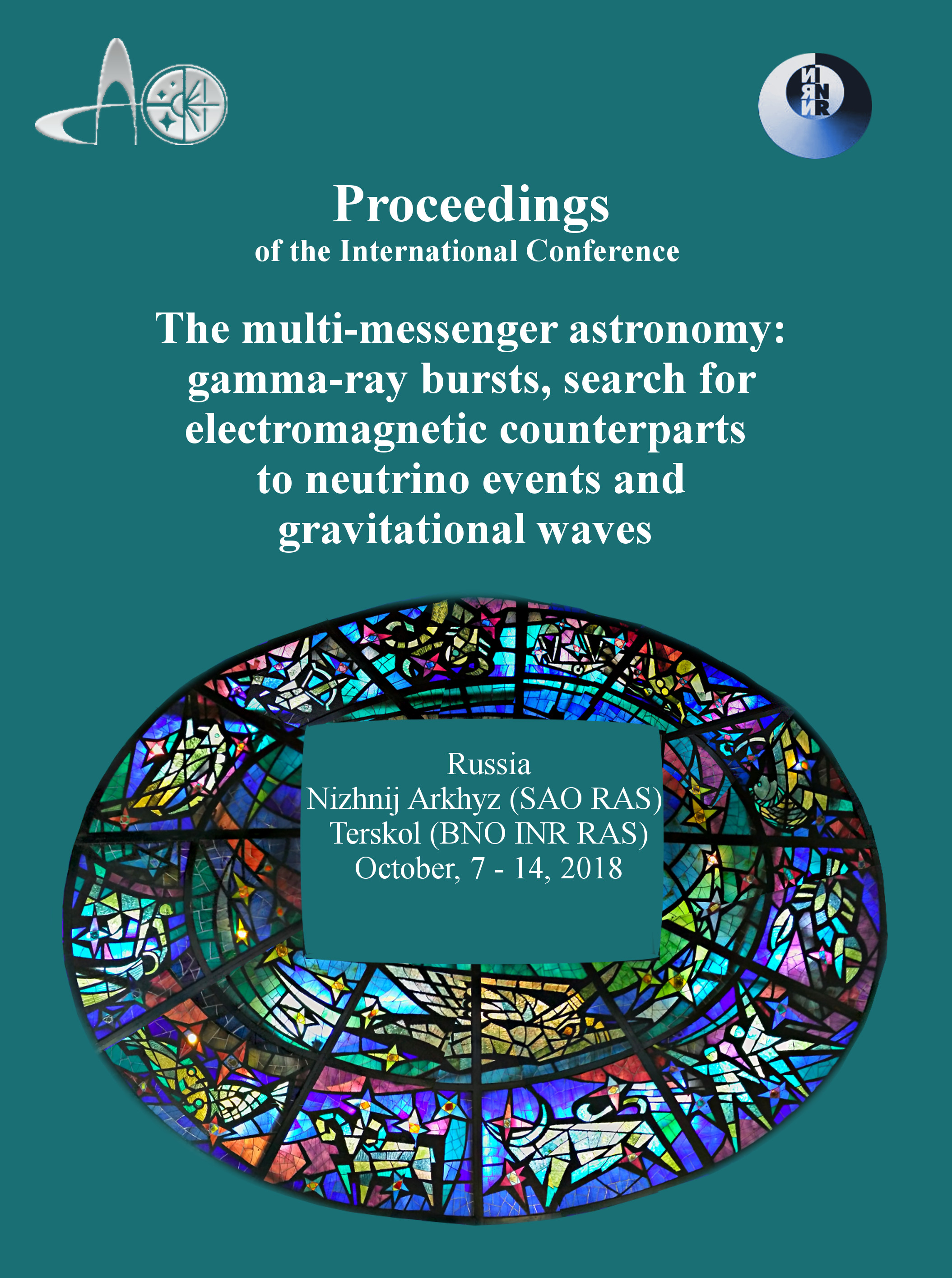Search for double K-capture of 124Xe with the large volume copper proportional counter
Yu.M. Gavrilyuk, A.M. Gangapshev, V.V. Kazalov, V.V. Kuzminov, S.I. Panasenko,
A.D. Petrenko, S.S. Ratkevich, D.A. Tekueva, and S.P. Yakimenko
|

|
Abstract
During several years at the Baksan Neutrino Observatory INR RAS is undergoing the experiment for searching of 2K
(2ν)-capture in 124Xe. This isotope has several advantages: 1) it has the largest kinetic energy
of transition among candidates of nuclei for which predicted the existence of ECEC; 2) since xenon is the noble gas,
then it could be easily used as a system isotope-detecting medium in a gas detector. To search for 2K-capture in 124Xe the large volume copper proportional counter (CPC) is used.
In our work, we present the results of the simulation, with the Geant4 package, of CPC background from the decays of
238U and 232Th nuclei in the construction materials of the CPC case, as well as in elements
of the low-background shield. The influence of neutrons produced in the rock of the underground laboratory from the decay of 238U and 232Th, where the experimental setup is located, on the production of the isotope
125I in the working gas of the detector, upon capture of thermalized neutrons by the 124Xe isotope
is considered. The 125I isotope can have a significant influence on the background of the experiment
since the total energy release in its decay belongs to the same energy region as ROI of 2K-capture in 124Xe.
Reference:
Yu.M. Gavrilyuk, A.M. Gangapshev, V.V. Kazalov, V.V. Kuzminov, S.I. Panasenko, A.D. Petrenko,
S.S. Ratkevich, D.A. Tekueva, and S.P. Yakimenko
"Search for double K-capture of 124Xe with the large volume copper proportional counter",
in Proceedings of the International Conference "The multi-messenger astronomy:
gamma-ray bursts, search for electromagnetic counterparts to neutrino events and gravitational waves",
Russia, Nizhnij Arkhyz (SAO RAS), Terskol (BNO INR RAS),
October, 7 - 14, 2018, Publishing house SNEG, Pyatigorsk, 2019, ISBN 978-5-6041711-1-0, pp. 66-73.
DOI: 10.26119/SAO.2019.1.35512
Download .pdf
|

